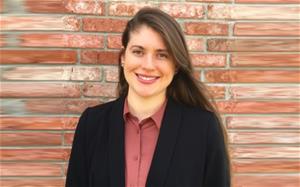Gathering Knowledge, Powering Innovation
At Gies Business, we promise our students that an education is just the start – that here they can discover their purpose. Our faculty are at the center of that promise, guiding students to challenge assumptions, to be inventive, and to develop their own style. Our exceptional faculty conduct cutting-edge research that regularly impacts industry and helps business decisions get made.
Gies Business Research Lab
Business increasingly needs accurate, actionable research – and more and more, the research they need requires active interaction and engagement with human participants. The Gies Business Research Lab (GBRL) is dedicated to supporting Gies faculty in performing groundbreaking research on business decision-making with human subjects. The industry-leading, innovative research performed in this lab can address critical societal needs through the transfer and application of knowledge and can help organizations and individuals make effective, efficient decisions.
GBRL resources are available to all Gies researchers conducting human subjects research. GBRL focuses on responding to the emerging needs of Gies researchers. GBRL provides tangible support and structure to enhance excellence in data collection, analysis, and publication, including access to student and non-student research participants, dedicated research and participant management systems, study implementation support, and state-of-the-art lab space. GBRL is also home to our groundbreaking alumni research study participation program: the Gies Business Research Panel.
Data Science Research Service
The Data Science Research Service (DSRS) drives research within the Gies College of Business by assisting students, faculty, and staff with their data science, machine learning, computational infrastructure, and data acquisition needs. The DSRS works as a component of the Gies Disruption initiative in efforts to make Gies the most technologically-forward and data-capable business college in the world.
Illinois Strategic Organizations Initiative
The Illinois Strategic Organizations Initiative (ISOI) is developing the next generation of thought leadership in the design and management of organizations and their strategic agendas. We conduct, sponsor, and promote world-class interdisciplinary research and thought leadership on strategic organizations. Our collaborative efforts create the framework for building, fostering, and disseminating an innovative research agenda globally.


